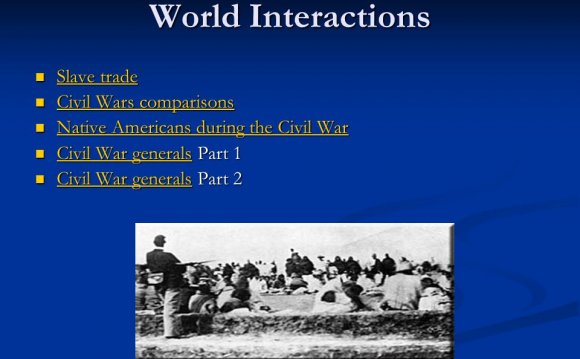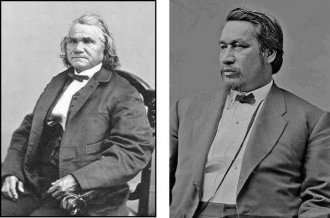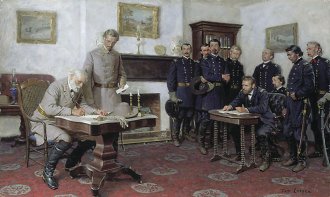
 Hello again, folks, and welcome back to the Connections blog! In keeping with my recent theme of exploring how the Civil War affected groups of people that often don’t get much of a voice in the historical narrative, today I will be exploring the topic of Native Americans in the Civil War. Indeed, Native Americans played a notable role in the conflict and could be found fighting with both the Union and the Confederate armies. Two of the most famous Native Americans to fight in the Civil War were Stand Watie and Ely S. Parker, and their stories highlight the problems and triumphs that Native Americans faced during the conflict.
Hello again, folks, and welcome back to the Connections blog! In keeping with my recent theme of exploring how the Civil War affected groups of people that often don’t get much of a voice in the historical narrative, today I will be exploring the topic of Native Americans in the Civil War. Indeed, Native Americans played a notable role in the conflict and could be found fighting with both the Union and the Confederate armies. Two of the most famous Native Americans to fight in the Civil War were Stand Watie and Ely S. Parker, and their stories highlight the problems and triumphs that Native Americans faced during the conflict.
Stand Watie was a member of the Cherokee, who in 1861 were primarily located in Oklahoma. At the outbreak of war, the Cherokee proclaimed neutrality – which, by default, supported the Union. Stand Watie was a staunch supporter of the Confederacy, and in defiance of this neutrality he led a large number of unhappy men with him off the Cherokee lands to join the Confederate army. Watie would rise through the ranks to Brigadier General and become one of the most fearsome commanders in the western theater. General Watie was the last Confederate general to surrender, which he did on June 23rd 1865 – a good two and a half months after General Lee surrendered at Appomattox.

Ely S. Parker, on the other hand, was a member of the Seneca, one of the six nations of the Iroquois in the area of upstate New York. His father had fought for the United States during the War of 1812, and Parker may have wanted to follow in his footsteps when he enlisted in the Union army. Parker rose to the rank of Brigadier General as well, and served extensively on the staff of General Ulysses S. Grant. When it came time for General Lee to surrender at Appomattox, General Parker was the one who wrote the actual document that Lee had to sign. After the war, Parker went on to serve as the Commissioner of Indian Affairs.
Native Americans often faced difficult choices during the Civil War. For nations on the frontier, picking sides was seen as a way to strengthen their position and secure more rights for their people. After Watie took large numbers of men and left for the Confederates, the Cherokee nation grudgingly offered support for the South until Union forces arrived in mid 1862, at which point they supported the Union again. Switching sides like this may seem damaging to their reputation, but it was the only possible way to avoid the destruction of their nation. After all, Native Americans all along the frontier had to deal with instability and partisan fighting in the Border States from Oklahoma to Missouri, and therefore had to make some very tough choices. As for nations like the Seneca, where choosing sides was relatively easy, people like Ely Parker still had to deal with discrimination: when Parker first tried to enlist as an engineer in 1861, he was refused on account of it being a Civil War between whites, and therefore not of his concern(citation). Although some Native Americans who sided with the Union (like Parker) ended up succeeding and coming out of the conflict on top, others – especially those on the frontier (like the Cherokee) – would soon suffer even greater hardships after the war as the United States refocused on expanding in its favorite direction: West.
RELATED VIDEO












